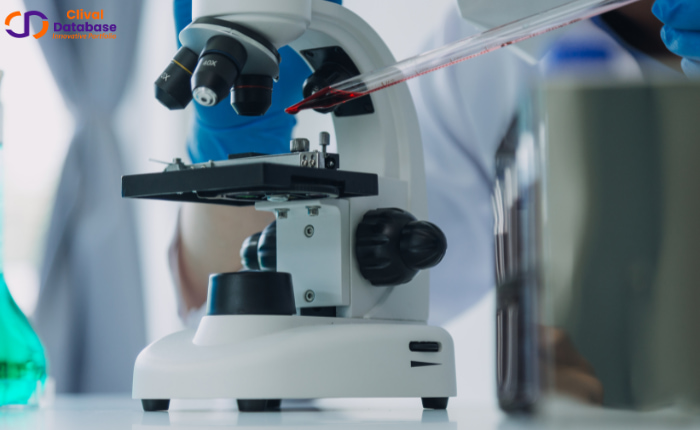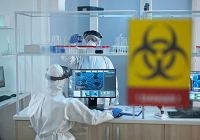Leveraging Technology for Clinical Trial Success
The world of clinical trials is evolving rapidly, with new technologies transforming how research is conducted and how data is collected, analyzed, and utilized. Technology is enhancing the efficiency, accuracy, and success of clinical trials, providing valuable insights that help in drug development, streamline clinical trial phases, and ensure that patient safety is always prioritized. In this article, we will explore how leveraging technology can lead to greater success in clinical trials and discuss its impact on clinical trial datasets the overall clinical trial process.
The Role of Technology in Clinical Trials
Clinical trials are complex processes that require careful planning, precise execution, and effective data management. From clinical trial datasets to the analysis of trial results, technology is now an indispensable tool in every stage of drug development. Here’s how different technological advancements are shaping clinical trials and driving success:
1. Data Collection and Management
The collection of clinical trial datasets is one of the most critical aspects of any clinical trial. Traditional methods of paper-based data collection can be slow and prone to human error. Modern technologies such as electronic data capture (EDC) systems have significantly improved the speed and accuracy of data collection, allowing for real-time monitoring of clinical trial progress.
EDC systems allow clinical trial organizations to gather data digitally, ensuring that the data is accurate, accessible, and stored securely. This reduces the risk of data loss or mismanagement, ensuring that every detail of the clinical trial is properly recorded. With this technology, researchers can now easily track patients, monitor adverse events, and analyze data more efficiently, contributing to quicker decision-making and faster trial completion.
2. Clinical Trial Data Analytics
Once the data is collected, the next step is analysis. Clinical trial data analytics has become one of the most valuable tools for extracting insights from vast amounts of data. Advanced statistical models and machine learning algorithms are now used to analyze the data, identify trends, and predict outcomes.
These analytics tools can also identify anomalies or outliers in the data, allowing for early intervention if any issues arise. With the help of data analytics, researchers can gain a deeper understanding of the efficacy and safety of the drugs being tested, improving the chances of a successful trial. Furthermore, data analytics can also optimize the trial design, helping to reduce costs and improve patient recruitment strategies.
3. Patient Recruitment and Retention
One of the biggest challenges in clinical trials is patient recruitment and retention. Finding the right candidates for a clinical trial can be time-consuming and costly. However, technology is helping to simplify the recruitment process.
Digital tools, including social media platforms, mobile apps, and patient registries, are now used to identify and recruit eligible patients. These tools can help connect clinical trial organizations with a broader pool of participants, including those in diverse geographical locations. For example, clinical trials in India have seen an increase in participation due to the widespread use of digital platforms that allow patients to learn about clinical trials, express interest, and even enroll online.
Additionally, retention tools such as mobile applications or patient portals help keep participants engaged and informed throughout the trial process. These platforms can send reminders for appointments, medication schedules, and assessments, helping to improve retention rates and ensure that patients adhere to the study protocol.

Remote Monitoring and Telemedicine
Remote monitoring technologies and telemedicine are playing an increasingly significant role in clinical trials. By leveraging wearable devices, mobile health apps, and telemedicine platforms, clinical trial organizations can remotely monitor patient health data such as heart rate, blood pressure, and other vital signs.
This technology allows for real-time data collection without the need for patients to visit trial sites frequently, reducing participant burden and increasing enrollment potential. Remote monitoring is especially useful in clinical trials in India and other regions with large populations and limited access to healthcare facilities, making it easier to reach patients in underserved areas.
Additionally, remote monitoring enables the early detection of adverse events or changes in a patient's condition, allowing for timely interventions if needed. This not only improves patient safety but also contributes to more accurate trial results.
Artificial Intelligence and Machine Learning
Artificial Intelligence (AI) and machine learning are making significant inroads in the clinical trial landscape. AI technologies can automate various aspects of clinical trials, from patient recruitment to trial monitoring and data analysis.
Machine learning algorithms can predict patient outcomes, analyze complex datasets, and identify potential drug candidates with greater accuracy. In fact, AI has the potential to significantly reduce the duration of drug development clinical trial phases by optimizing study designs and accelerating the analysis of trial results.
By automating administrative tasks, AI also frees up time for clinical researchers to focus on higher-value tasks, such as hypothesis generation and critical decision-making. In the future, AI and machine learning will likely play an even bigger role in the optimization of clinical trial processes, contributing to faster and more efficient drug development.
The Impact on Drug Development Clinical Trial Phases
Clinical trials are typically divided into several phases, each with its own objectives and milestones. Technology is helping to streamline each of these phases, from the initial pre-clinical phase to post-market surveillance:
1. Phase 1 – Safety and Dosage
In Phase 1, the primary objective is to assess the safety and dosage of a new drug. Technology enables more precise dosing, better tracking of adverse events, and faster data collection, allowing researchers to identify optimal dosage levels quicker.
2. Phase 2 – Efficacy and Side Effects
During Phase 2, the drug’s efficacy and side effects are closely monitored. Technology like data analytics and AI can identify patterns in trial results that may indicate early signs of efficacy or potential side effects, which is crucial for making informed decisions about whether to move forward.
3. Phase 3 – Confirmatory Trials
Phase 3 involves large-scale trials to confirm the drug's efficacy and monitor side effects. Advanced technology can optimize recruitment and retention during Phase 3, ensuring that the trial is diverse and representative of the intended patient population. Furthermore, real-time data analytics helps clinical trial organizations track progress and adjust protocols as needed.
4. Phase 4 – Post-Market Surveillance
Even after a drug is approved, it undergoes post-market surveillance to monitor long-term effects. Technologies such as remote monitoring and AI can continue to gather patient data after approval, ensuring that any unforeseen issues are quickly detected.
Conclusion
Technology is revolutionizing the clinical trial process, from improving clinical trial datasets and utilizing clinical trial data analytics to enhancing patient recruitment, retention, and safety. Whether through the use of AI, remote monitoring, or digital platforms for clinical trials in India, these innovations are paving the way for more successful, efficient, and accessible clinical trials.
As drug development continues to advance through its clinical trial phases, leveraging technology will become increasingly essential for ensuring that new therapies reach patients in a timely manner. Clinical trial organizations that embrace these technologies will not only improve the likelihood of success in clinical trials but also contribute to advancing healthcare and improving patient outcomes globally.
Frequently Asked Questions

Optimize Your trial insights with Clival Database.
Are you exhausted from the uncertainty of trial insights pricing? Clival Database ensures the clarity in the midst of the global scenario for clinical trials to you.Clival Database is one of the best databases that offers an outstanding number of clinical trial data in terms of 50,000+ molecules and from primary regulatory markets as well as new entrants like Indian and Chinese markets.
Elevate your trial success rate with the cutting-edge insights from Clival database.
Check it out today and make more informed sourcing decisions! Learn More!







